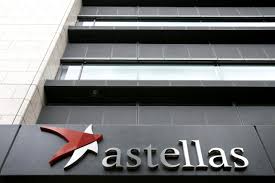Two Charitable Foundations Pay $6 Million for Anti-Kickback Violations

Two charitable foundations that helped patients pay for drug co-payments settled anti-kickback charges for $6 million. The Patient Access Network Foundation (PANF) agreed to pay $4 million and Good Days agreed to pay $2 million to resolve AKS allegations.
The charitable foundations were used as pass throughs for Denderon, Astellas, Amgen and other drug companies to funnel money to Medicare patients taking their drugs. The drug companies donated funds to the foundations, which were then used, to help Medicare patients to cover co-payments for specific drugs. In particular, the government cited the fact that the foundations and the companies worked together to create funds that paid kickbacks to patients. The drug companies donated the funds to the charities on the condition that the funds were used to pay for patient use of their respective products.
The government contends that the AKS statute prohibits drug companies from making payments to encourage patients on Medicare to buy their drugs over other companies’ products, and that the statute bar third parties (i.e. the foundations) from conspiring with drug companies to do so.
The foundations entered into corporate integrity agreements requiring them to ensure that their relationships with drug companies do not violate the law. These agreements are for aa three-year term.

Under the settlement agreement, PANF agreed that, between 2011 and 2014, it received payments from Astellas, Bayer Pharmaceuticals, Denderon, and Amgen, and then used such payments to cover patient co-payments for use of drugs provided by each of these companies. Specifically, the settlement agreement noted that PANF maintained a fund to cover co-pays for patients taking drugs that treated certain types of prostate cancer. In response to a specific demand from Bayer, PANF opened a specific fund for a drug only provided by Bayer for the use of radioactive drugs for which Bayer was the sole provider of the drug and was the only donor to the fund. In response, Astellas and eventually Dendreon requested PANF to create restricted funds based on so-called unique capabilities and treatments for types of prostate cancer.
A similar pattern occurred with the operation of another fund by PANF relating to a chronic kidney disease for patients on dialysis. Amgen approached PANF about creating a fund to treat this disease and solely support a drug manufactured by Amgen. For nearly three years, Amgen was the only donor to the fund and the co-payments were made only to support use of Amgen’s drug.

With respect to Good Days, Astellas, Dendreon, Novartis, Onyx Pharmaceuticals, Questcor (now Mallinckrodt) engaged in funding of specific treatment categories that were tailored to specific drugs offered by a company. Between 2010 and 2014, Good Days conspired with each of the companies to create a fund restricted to a specific type of treatment and patient – in this manner, drug companies donated the funds for use to cover co-payments for their specific drugs.














